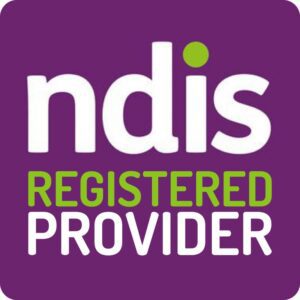The National Disability Insurance Scheme (NDIS) provides essential support and services to eligible Australians with disabilities. If you’re looking to apply for NDIS funding, follow these five key steps to ensure a smooth and successful process.
Step 1: Check Your Eligibility ✅
Before applying for NDIS funding, you need to determine if you meet the eligibility criteria. You may be eligible if:

You are under 65 years old

You have a permanent and significant disability that affects your daily life

You are an Australian citizen, permanent resident, or hold a Protected Special Category Visa
To check your eligibility, you can use the NDIS Eligibility Checklist or call 1800 800 110 for assistance.
Step 2: Submit an Application 📝
If you’re eligible, the next step is to submit an Access Request Form. This application requires supporting evidence, such as:

Medical reports, assessments, or letters from healthcare professionals

Existing documents related to your disability

Evidence of how your disability impacts your everyday life
If you need additional documentation, your GP, psychologist, occupational therapist, or social worker can help. Medicare rebates may be available for some assessments through the Better Access initiative.
Step 3: NDIA Approval Process ⏳
The National Disability Insurance Agency (NDIA) reviews your application and will contact you with a decision within 21 days of receiving all required information. Possible outcomes include:

Approved
You will receive a letter confirming your eligibility and next steps.

Not Approved
You will receive a letter explaining why. If you disagree with the decision, you can request a review within 3 months.
If you haven’t received an update within 21 days, follow up with the NDIA to ensure there are no delays.
Step 4: Choose How to Manage Your Plan 🤝
Once approved, you will work with an NDIS planner to create a personalised NDIS Plan. You can choose how to manage your funding:

Self-Managed
You handle payments and service agreements yourself

Plan-Managed
A registered plan manager helps manage payments and providers

NDIA-Managed
The NDIA handles payments directly to registered providers
Your plan will include budgets for Core Supports, Capacity Building, and Capital Supports tailored to your needs.
Step 5: Access Services & Review Your Plan 🔄
With your NDIS Plan active, you can now start using your funding to access support services like:

Community Access
Stay connected and engaged with support for transport, social activities, and community events. Our services help you attend appointments, explore hobbies, and build meaningful relationships.

In-Home Care
Receive personalised support in the comfort of your home. We assist with personal care, daily routines, meal preparation, companionship, and more to promote your independence.

Respite Care
Enjoy short-term stays or getaway experiences with 24/7 support, nutritious meals, engaging activities, and personalised care plans designed to give both participants and carers a well-deserved break.

Supported Independent Living (SIL)
Explore accessible, shared housing options tailored to your unique needs. Our SIL services provide long-term support to help you live independently while receiving the care you need.
About DisabilityCo
Founded by Dylan Maliepaard, DisabilityCo was created to bring genuine, compassionate care to the disability sector. Since 2018, we’ve delivered quality care across South-East Melbourne, offering services like Supported Independent Living (SIL), respite care, and in-home support.
Our mission is simple: to empower participants and build a caring, inclusive community.
Need Help? DisabilityCo Can Guide You!
At DisabilityCo, we specialise in helping individuals navigate the NDIS with ease. Whether you need assistance with your application, finding a support worker, or managing your plan, we’re here to help! 💙
- 1300 897 848
- services@disabilityco.com

© 2021 All Rights Reserved.